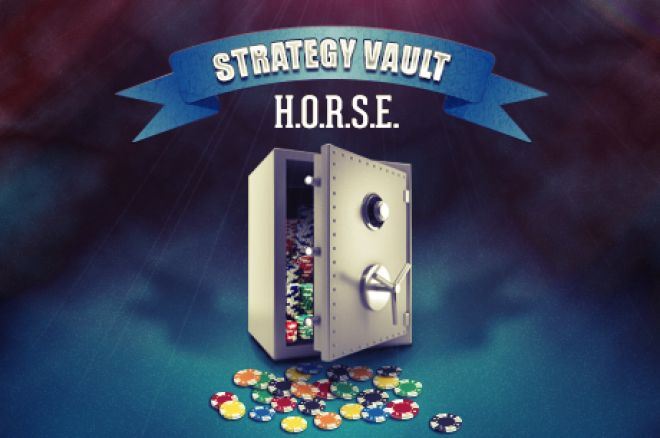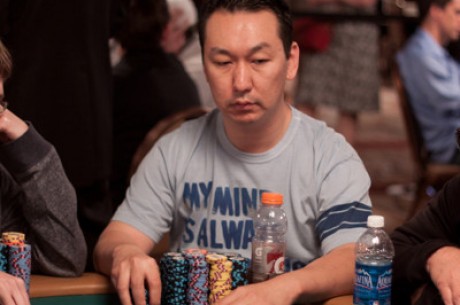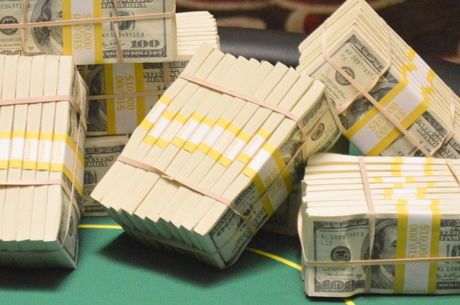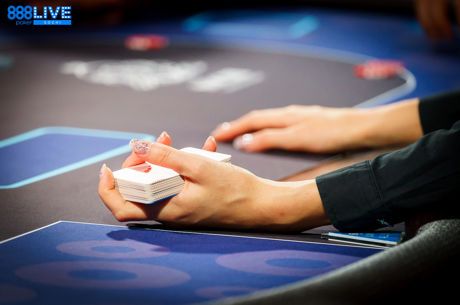Strategy Vault: Basic Mixed-Game Cash Game Considerations

Digging deep into the PokerNews strategy archives can lead to a buried treasure, so we'll be unearthing a few gems for your viewing pleasure. For this edition of the Strategy Vault series, we follow up on last week's piece discussing basic mixed-game tournament considerations with some basic mixed-game cash game considerations.
Last week, I set forth a few basic concepts and strategies to consider before signing up to play in a mixed-game tournament. This week, I want to look at cash games, as mixed games have recently become much more of a mainstay in poker rooms around the world, and not just at the nosebleed stakes for which they were previously known.
The first aspect to consider before sitting down to play in a mixed-game cash game is what games you want to play. Mixed-game tournaments are almost always played with a H.O.R.S.E. format. Apart from one or two unique events at the World Series of Poker, it is almost impossible to find a mixed-game tournament in any other format but H.O.R.S.E. Thus, there's not really much choice but to learn to play each of the games if you want to successfully compete in a mixed-game event.
Cash games, on the other hand, come in a variety of flavors. Within the last couple years, I've seen the following mixes of games spread at poker rooms around the country: H.O.R.S.E., O.E., B.T.O., B.O.T.E., and H.O.B.S. If you can't easily get to a brick-and-mortar poker room, many online sites also offer mixed games. The most popular is H.O.R.S.E., but other variants such as H.O.S.E. (many players detest razz) and H.O.E. are also spread on the online sites. Thus, with a little bit of searching and some bit of luck, it should be possible to find a cash game that includes only games you're actually interested in learning and playing. That's not always the case, which is why it's good to have a basic background in each of the games you're most likely to encounter, but this is one area where a bit of diligence and patience in game selection can really pay off.
Once you've found your game, the next thing to notice is how often the game changes In some poker rooms, the game changes at every dealer push. In others, it changes after one orbit, or two orbits, or a set number of hands. A simple question to the dealer when you sit down can save some headache here, because otherwise it may take a bit of time (and some deductive reasoning) to figure it out.
It may be that it's impossible to find a game that has precisely the mix of games you're looking for. You might stumble across a $10/$20 B.O.T.E. game and really enjoy playing Omaha, triple draw and stud hi/lo, but have absolutely zero experience playing badugi. In such a situation, you could sit down to play the game and conveniently get up for a "smoke break" or a "bathroom break" every time the game switches to badugi. I don't necessarily advocate this course of action �� my personal feeling is that if you sit down to play in a mixed game, you should sit down with the intention of playing every game �� but as far as poker ethics are concerned, skipping one orbit of a game is a minor breach at best. After all, think about how many times people wander away from the table during a typical cash session of straight hold'em or Omaha.
In mixed games where the game only changes at every dealer push, or every two orbits, skipping a whole game is less of an option. It's really hard to justify being consistently away from the table for that length of time, and it's not really fair to your opponents. You might also consider the value of staying at the table and actually playing the unfamiliar or weak game. Reading books or watching online training videos is an excellent way to improve your game, but the only way to get to Carnegie Hall is practice, practice, practice. Actual experience playing a game is the best way to improve.
When discussing tournament play last week, one thing I noted was that you should be aware of when the level and game are going to change and what the new limits will be. In a cash game you don't really have to worry about any of that. The limits are never going to change, and the only point of being aware of a game change is so that you're playing the right game. However, you should still try to play tighter in games where you know you are weak, simply as a cash preservation method. The irony is that people tend to play looser and more passively in their weaker games, often playing starting hands that they shouldn't be playing and passively playing them through too many streets. This is where a poker anthology such as Super System 2 can be a great help.
Other than that, mixed-game cash play isn't too different from playing in a single-game cash game �� with the obvious exception that more than one game is being played. As in a tournament, you should pay particular attention during the non-flop games to how your opponents play. Many people have far less experience playing stud games and draw games than they do with flop games for the simple reason that hold'em, and to a lesser extent Omaha, have dominated the television scene for the last five years. There's also a significantly higher degree of skill required to play draw games and stud games then there is for flop games, especially hold'em, where you only have to keep track of two cards at any one time, and where most of the time no hand is much greater than a 4-to-1 underdog against any other hand before the flop. For both of these reasons, if you develop some proficiency with the non-flop games, you may have a significant edge over your opponents.
This article was originally published on Aug. 30, 2008.
To stay on top of the poker world, follow us on Twitter and like us on Facebook.








